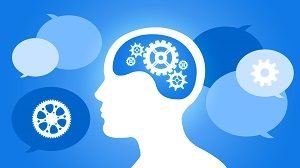 It is a fact that the thinking process is a feature inherent in every human being. In particular, the notion of what is rational thinking can be considered as an integral and crucial part of the overall thinking process for every particular person. Today, in the era of digital technologies, when information is affluent and controversial as never before, it is crucial to parse the truth from the multiplicity of various claims. Whether it is the information about climate change, fertility rates or discovering a new type of vaccines, a wide list of conspiracy theories and false assumptions contend with science for the trust of the general public. In such cases, rational thinking is the key to the accurate assessment of the situation that allows a person to recognize right decisions among a variety of options. Hence, it is crucial to become aware of the factual definition of what is rational thinking.
It is a fact that the thinking process is a feature inherent in every human being. In particular, the notion of what is rational thinking can be considered as an integral and crucial part of the overall thinking process for every particular person. Today, in the era of digital technologies, when information is affluent and controversial as never before, it is crucial to parse the truth from the multiplicity of various claims. Whether it is the information about climate change, fertility rates or discovering a new type of vaccines, a wide list of conspiracy theories and false assumptions contend with science for the trust of the general public. In such cases, rational thinking is the key to the accurate assessment of the situation that allows a person to recognize right decisions among a variety of options. Hence, it is crucial to become aware of the factual definition of what is rational thinking.
The Notion of Rational Thinking
Thinking is the subject of studies of various scientific disciplines, such as logic, philosophy, psychology, genetics, linguistics, as well as other sciences that try to understand the mental processes of humans and answer the questions what thinking actually is. However, in spite of the generality of this phenomenon, the process of rational thinking takes a special place, as it means not to think about all at once, but concentrate directly on a specific purpose. Rational thinking is thinking with clear logic and goes strictly for the purpose, contrary to the irrational and sometimes simply incoherent thinking, which represents a flow of thoughts without any logic and purpose. Rationality usually means wisdom and certain knowledge characteristics, which is the opposite of the sensory and emotional comprehension. In general, it can be stated that this is a rational way of thinking, when the best decisions are made on the basis of the comparison of a set of facts, rather than on the basis of feelings or emotional motives. Rational thinking is an economical and extremely effective way of a thinking process, during which, intellectual activity brings the most positive result at the lowest cost (psycho-emotional and intellectual efforts). Besides, it is worth noting that logic is a crucial component of rational thinking, which supposes that certain conclusions must have a strict logical sequence.
The Principles of Rational Thinking
In general, the process of rational thinking applies such operations as a comparison, analysis, abstraction, synthesis, classification, formalization, modeling, idealization, as well as a generalization. In order to find the truth, rational thinking uses such processes as deduction, induction, and others. Rational thinking is associated and based on sensual thinking. Nevertheless, unlike sensual thinking, it is not tied to images and sensations, and selects only relevant information. The process of rational thinking can be represented by the following chain: the establishment of concepts, making judgments about the concept, the connection of judgment in reasoning, and the comparison of concepts, judgments, and conclusions in the framework of available evidence.
Applying Rational Thinking
As a matter of fact, continuous improvement of rational thinking will help to build a successful career in various areas. As such, rational thinking is applied in everyday life and in professional activities. In particular, certain spheres of human activity, such as law, economics, and politics simply could not exist without a rational thought, because every step has to be weighed, subjected to the control of reasoning, as well as logically justified. Rational thinking helps highlight the truth among many possible options, regardless of whether this is the attempt to understand some new theory, drawing up the family budget, or just some kind of everyday business.